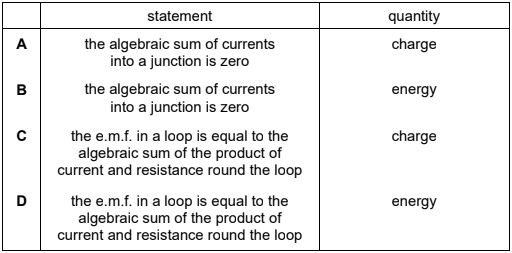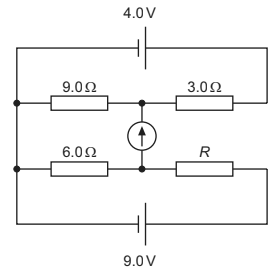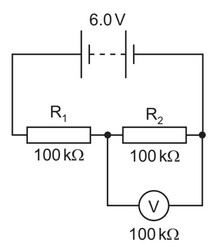Question
Each of Kirchhoff’s two laws presumes that some quantity is conserved.
Which row states Kirchhoff’s first law and names the quantity that is conserved?

Answer/Explanation
Ans:
Question
In the circuit shown, the cells have negligible internal resistance and the reading on the galvanometer is zero.

What is the value of resistor R?
A \(2.0\, \Omega\) B \(6.0\, \Omega\) C \(12\, \Omega\) D \(18\, \Omega\)
Answer/Explanation
Ans:
Question
Two batteries are connected together, as shown.

Battery 1 has electromotive force (e.m.f.) 12V and internal resistance 0.3Ω.
Battery 2 has e.m.f. 9V and internal resistance 0.1Ω.
What are the e.m.f. and the internal resistance of a single battery that has the same effect as the combination?
| e.m.f. /V | internal resistance/Ω | |
A B C D | 3 3 21 21 | 0.2 0.4 0.2 0.4 |
Answer/Explanation
Ans:
Question
In the circuit shown, the 6.0V battery has negligible internal resistance. Resistors R1 and R2 and
the voltmeter each have a resistance of 100 \(k\omega \).
What is the current in the resistor \(R_2\)?
A 20 \(\mu A\) B 30 \(\omega A\) C 40 \(\omega A\) D 60 \(\omega A\)
